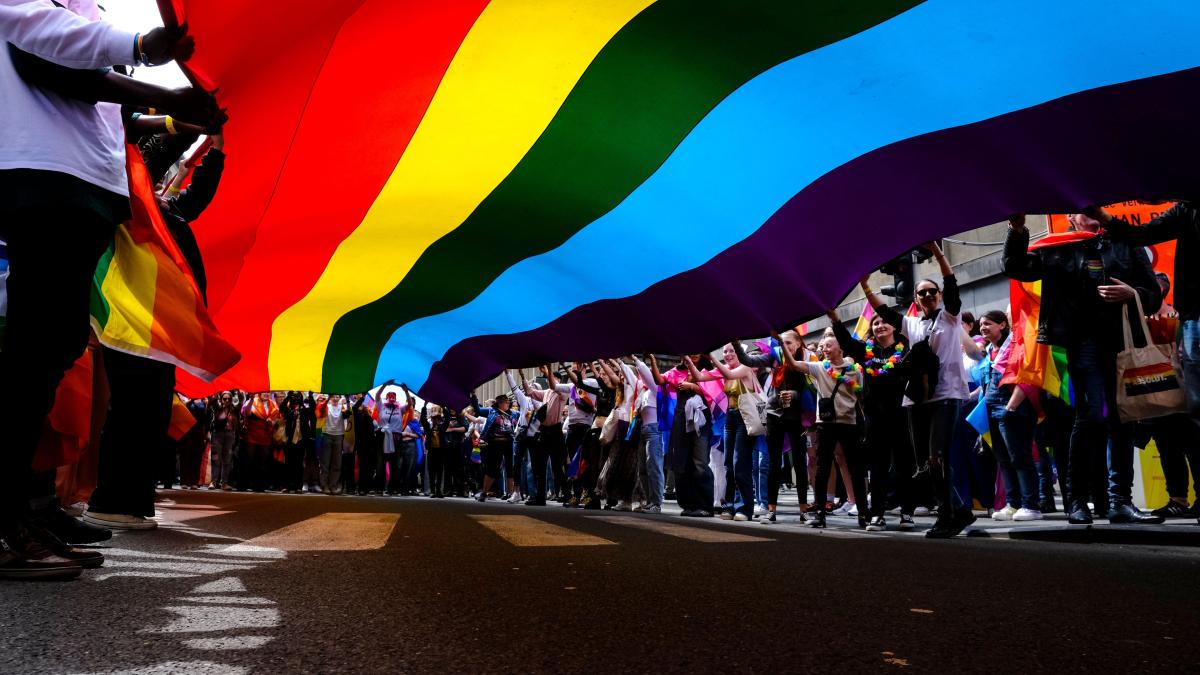Politics
EU Proposes Gender Transition Freedom for Children at Any Age

The European Union has introduced a controversial proposal that would allow children to change their gender identity without age restrictions. This initiative could lead to significant legal consequences for member governments that impose age limits on gender transition, potentially facing penalties from the European Court of Justice.
Under the proposal, children across the EU would have the right to change their gender identity at any age, challenging existing laws in several member states. Critics have voiced strong opposition, asserting that this move caters to the demands of transgender activists without adequately considering the implications for minors.
Legal Implications and Reactions
The proposal, announced in October 2023, has ignited a fierce debate across Europe. Supporters argue that it is essential to uphold the rights of transgender individuals, particularly young people who may struggle with their identity. They contend that allowing children the freedom to express their gender identity is a fundamental human right.
Conversely, opponents claim that such a policy undermines parental rights and could lead to irreversible decisions being made by minors. Many fear that the absence of age limits might expose children to pressure from peers or society, potentially resulting in life-altering choices made without sufficient understanding of the consequences.
The European Court of Justice is expected to play a pivotal role in interpreting the legality of such age restrictions. Governments that choose to enforce age limits could face legal challenges, prompting concerns about the balance between individual rights and governmental authority.
Broader Context and Future Outlook
This initiative is part of a broader movement within the EU to promote equality and inclusivity for all individuals, including those in the LGBTQ+ community. Member states have varied approaches to gender identity, with some allowing more flexibility than others. The proposed changes could standardize practices across the union, though the response from member governments remains mixed.
As discussions continue, the implications of this proposal will likely extend beyond legal frameworks into the realms of education, healthcare, and social services. The EU’s commitment to promoting human rights will be tested as this proposal moves forward, and the balance between advocacy and protection will be scrutinized.
The outcome of this initiative has the potential to reshape the landscape of gender identity recognition in Europe, impacting countless lives. As the debate unfolds, it remains to be seen how member states will respond to the challenge of aligning their laws with this emerging framework.
-

 Entertainment3 months ago
Entertainment3 months agoAnn Ming Reflects on ITV’s ‘I Fought the Law’ Drama
-

 Entertainment4 months ago
Entertainment4 months agoKate Garraway Sells £2 Million Home Amid Financial Struggles
-

 Health3 months ago
Health3 months agoKatie Price Faces New Health Concerns After Cancer Symptoms Resurface
-

 Entertainment3 months ago
Entertainment3 months agoCoronation Street’s Carl Webster Faces Trouble with New Affairs
-

 Entertainment3 months ago
Entertainment3 months agoWhere is Tinder Swindler Simon Leviev? Latest Updates Revealed
-

 Entertainment4 months ago
Entertainment4 months agoMarkiplier Addresses AI Controversy During Livestream Response
-

 Science1 month ago
Science1 month agoBrian Cox Addresses Claims of Alien Probe in 3I/ATLAS Discovery
-

 Entertainment4 months ago
Entertainment4 months agoKim Cattrall Posts Cryptic Message After HBO’s Sequel Cancellation
-

 Entertainment2 months ago
Entertainment2 months agoOlivia Attwood Opens Up About Fallout with Former Best Friend
-

 Entertainment3 months ago
Entertainment3 months agoMasterChef Faces Turmoil as Tom Kerridge Withdraws from Hosting Role
-

 Entertainment4 months ago
Entertainment4 months agoSpeculation Surrounds Home and Away as Cast Departures Mount
-

 World2 months ago
World2 months agoCole Palmer’s Mysterious Message to Kobbie Mainoo Sparks Speculation





















